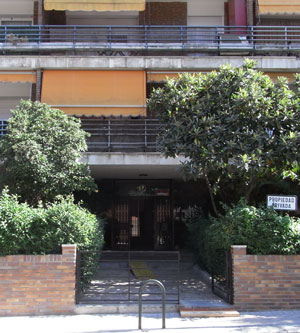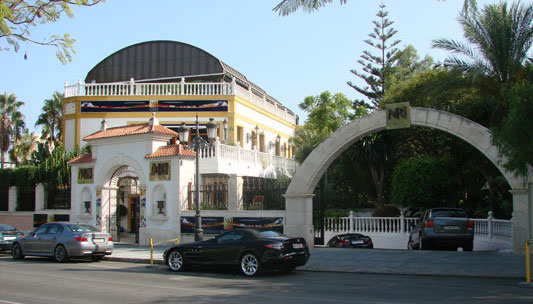The Inglorious End of Macanthony Realty International: From Dust to Dust

MRI Headquarters in 2010
According to the Companies House, MRI International has relocated to the Spanish capital, Madrid, presumably with the intention of (dis)accommodating the company’s ever-expanding number of disgruntled clients.
Since Calle Azulinas to us means nothing, we decided to send a member of our firm to talk to their ever-attentive staff members, and find out if they would be willing to assist. However, when we got there, all we found was a decaying block of flats for the Madrid middle-class with no physical trace of the address they now claim to, which is Calle Azulinas 7, Bajo Izda (Ground floor 7).
This is a far cry from the times of the Ferraris, Lamborghinis, €100K beach-parties, bodyguards and the rest of paraphernalia that was associated with the now defunct organization. However, notwithstanding its apparent return to humility, the move implies more sinister motives, for what they have effectively done is “kill” the company by relocating to a fictitious address, appointing, at the same time, a director that happens to be no other than a purposely incorporated Peruvian-based company called Inmobiliaria Vasco-Peruana de Inversiones. This is a dead end where the postman does not always ring twice, because he simply cannot find a ground floor!
When going to the companies house we find that these inexistent offices are also company addresses for the following Spanish limited companies, all of which share one common denominator: they don’t have websites nor Spanish telephone numbers (and some share the same director):
- Macanthony Reality International Spain S.L.
- Jaguar Ardey Spain S.L.
- Groot & Deed S.L.
- Nass Servicios de Automoviles
- Alkonda Inmobilien S.L.
- Inversiones Suelos Comerciales de Murcia S.L.
- Rochester Iberica 2000
The representative of the Peruvian company is a Spanish chap with a “conquistador” name, Fernando de Arespacochaga y Alcala del Olmo who, according to a report we have obtained, travels regularly between both countries. No further information has been gathered, since they are not available nor are their phone numbers operative.

MRI Headquarters in the 'glory' days
It should be noted that this is the most unusual way to wind up a business and make it disappear forever, given the responsibility attributed to company directors. Unless of course they are based in Peru!


